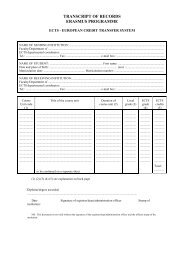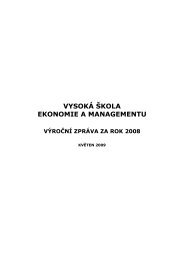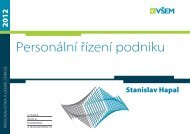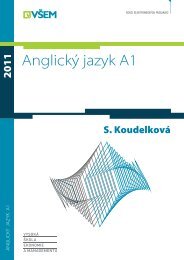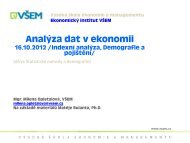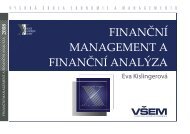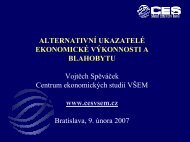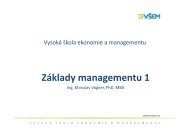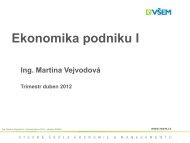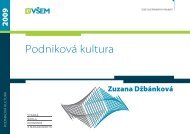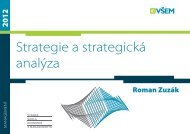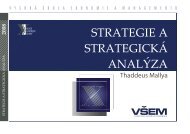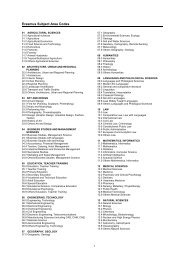Anglický jazyk A0 - VŠEM
Anglický jazyk A0 - VŠEM
Anglický jazyk A0 - VŠEM
You also want an ePaper? Increase the reach of your titles
YUMPU automatically turns print PDFs into web optimized ePapers that Google loves.
7) Which tense do we use for regular activities? Which tense do we use foractions happening now?Structure summaryPresent simpleVerb TO BE+ - ?I AM (`M) AM NOT AM IWE/THEY/YOU ARE (`RE) ARE NOT (AREN`T)ARE WE/THEY/YOUHE/SHE/IT IS (`S) IS NOT (ISN`T) IS HE/SHE/ITVerbs+ - ?I/WE/THEY/YOU WORK DO NOT (DON`T) WORK DO YOU WORKHE/SHE/IT WORKS DOES NOT (DOESN`T) WORK DOES HE WORK• work > works• study > studies (y>i after a consonant)• finish > finishes (after sh, s, ch, x add es)• go > goes, do > does, have >hasUse present simple for things you do every day, week, year or which are always true, weoften use the simple present with adverbs of frequency (always, often, sometimes,usually, hardly ever, never). Adverbs of frequency go before the main verb but after be. 3He usually gets up early. * He is always late.3 Přítomný prostý čas užíváme pro aktivity, které děláme obvykle, denně, každý měsíc apod. nebo pro situace,které jsou trvalé. Často používáme příslovce frekvence (vždy, často, někdy, obvykle, zřídka, nikdy). Totopříslovce je ve větě před hlavním slovesem, ale až po slovesu být.



